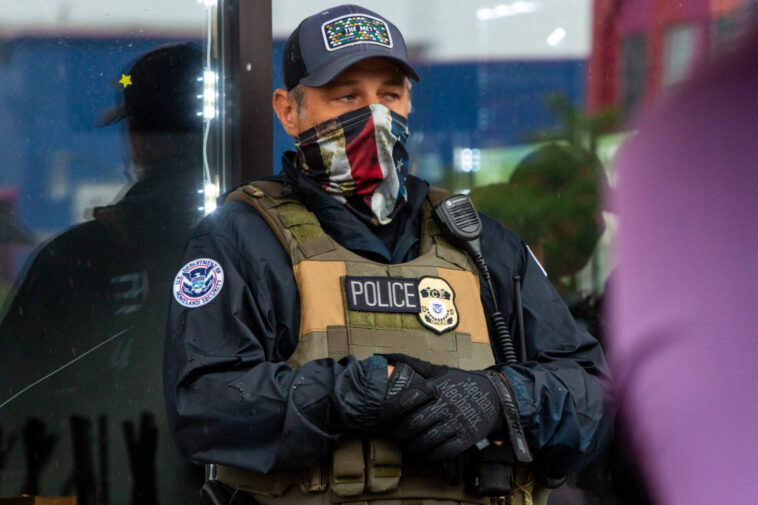In the recent past, it’s become a common sight to witness immigration agents arresting people, often resulting in public outrage. However, these agents’ identities are concealed under hats, sunglasses, or face coverings, making them unrecognizable to the public. The half-year trend of law enforcement officers hiding their faces, mandated by the Trump administration during severe immigration clampdowns, became an iconic yet divisive image in 2025.
Officials from the Trump administration staunchly defended the use of masks, citing increased scrutiny towards immigration agents in public settings and through digital mediums. These defensive measures, they argued, were crucial for the safety of the agents and their families, protecting them from severe threats such as death threats and the illegal disclosure of personal details online, a practice commonly referred to as ‘doxing’.
On the other hand, Democrats and other critics, including state attorneys general, opposed the mask mandate in law enforcement. They cited increased public fear caused by the sight of masked agents and called for halting the practice. Many felt this added a layer of intimidation in public areas such as workplaces and restaurants, where intense immigration scrutiny was already causing distress.
Democratic Senators expressed their concerns in a communiqué to Lyons, illustrating how the presence of anonymous law enforcement officials at regular city locations contributed to a heightened fear and unrest. They characterized these practices as an attempt to instigate further chaos and a deliberate evasion of responsibility for the agents’ actions.
Culturally speaking, the act of concealing one’s face in America is invariably linked with assumptions of ill-intent. Observing masked police or paramilitary forces in other nations, Americans have perceived such practices as counter to democratic ideals and the universal justice promised by the common-law principle allowing individuals to confront their accusers.
It raises concerns when the enforcers of the law themselves appear masked. While some might argue that other non-law enforcement individuals also wear masks, the distinction lies in the symbolism associated with the power wielded by those behind the masks. Law enforcement personnel, as agents of the state, bear a unique burden of responsibility, transparency, and accountability to the public.
As members of a projected public service, immigration agents should remain identifiable enabling the public to hold them accountable for their actions. Hence, the covering of faces is seen as a contradiction of their roles, generating debates over how these agents can be effectively held accountable.
Disguising identity through the use of masks is not new in American history, with one prominent example being the Klu Klux Klan. For them, masks functioned as a shield to conceal identities, facilitating the commission of violent racial hate crimes. Equating this to the use of masks by law enforcement agents paints a negative picture.
One psychological effect of using a mask, likened to the psychological effect of standing behind a riot shield, is that it creates a barrier between the wearer and the target, making it easier to deprecate the humaneness of the target. This dehumanization then provides a pathway to facilitate violence against the other party.
There have been instances where local authorities have sanctioned the use of masks by police officers, such as in New York where Nassau County Executive, Bruce Blakeman, authorized police officers to wear face coverings during certain operations, including collaborations with immigration agents.
However, the mask-wearing practice in law enforcement has shown to exacerbate fear and diminish public trust. From federal to local levels, American policing primarily operates on trust between law enforcement and the community, transparency in their operations, and fostering positive relations within the communities they serve.
The adverse impacts of mask-wearing extend not only to individual officers but also to the profession and society at large. This practice can catalyze more division, destroying trust and intensifying the us-versus-them narrative, which is deeply unwanted in the current climate.

